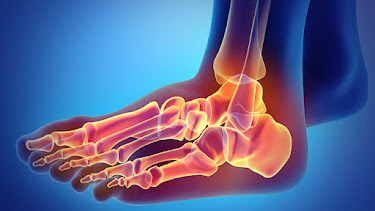The Worst Foods for Arthritis: Culprits to Eliminate from Your Plate
Arthritis, a chronic condition characterized by inflammation of the joints, can significantly impact one's quality of life. While medication and physical therapy play crucial roles in managing arthritis symptoms, adopting a healthy diet can also make a substantial difference in alleviating pain and reducing inflammation. By avoiding certain foods and beverages that have been shown to exacerbate arthritis symptoms, individuals can take control of their condition and lead a healthier, more comfortable life. In this article, we will delve into the worst foods for arthritis, providing you with recommendations on what to eliminate from your plate.
1. The Role of Diet in Arthritis Management
Before we explore the specifics, it's essential to understand the crucial role that diet plays in managing arthritis. Although there is no one-size-fits-all approach, several studies suggest a strong association between certain foods and increased inflammation levels in the body. By identifying and eliminating these culprits from your diet, you can potentially prevent flare-ups and mitigate arthritis symptoms. Therefore, it is vital to be mindful of what you consume on a daily basis.
2. Processed Foods: The Hidden Enemies
Processed foods are widely available and often tempting due to their convenience and taste. However, they are among the worst culprits for arthritis sufferers. These foods typically contain high amounts of trans fats, refined sugars, and preservatives, which can trigger inflammation and joint pain.
=> Trans Fats: A True Arthritis Foe
Trans fats, commonly found in processed snacks, fried foods, and commercially baked goods, should be avoided at all costs. These unhealthy fats disrupt the body's natural inflammation response, leading to an increase in joint inflammation and exacerbation of arthritis symptoms. To steer clear from trans fats, carefully read food labels and opt for healthier cooking alternatives such as olive oil or avocado oil.
=> Refined Sugars: Sweetness with a Bitter Aftermath
Foods that contain refined sugars, such as sugary beverages, candies, and pastries, are not only detrimental to overall health but also contribute to joint inflammation. These sugary treats cause a rapid spike in blood sugar levels, triggering an inflammatory response throughout the body. Swap out sugary snacks for natural alternatives like fruits or opt for beverages with zero or low sugar content to help minimize the impact on your arthritis.
3. Red Meat: Less Is More
While the occasional indulgence in a juicy steak may not be problematic, regularly consuming red meat can worsen arthritis symptoms. Red meat is rich in saturated fats, which promote inflammation and can potentially lead to cartilage damage. It is recommended to limit red meat intake and opt for lean protein alternatives like poultry, fish, or plant-based sources such as legumes and tofu.
4. Nightshade Vegetables: An Unsettling Connection
Nightshade vegetables, including tomatoes, peppers, eggplants, and potatoes, have long been debated in relation to arthritis symptoms. Some patients report increased joint pain and inflammation after consuming these vegetables, while others may not experience any adverse effects. Although the evidence is not conclusive, if you find that nightshade vegetables worsen your arthritis symptoms, it may be worth eliminating or reducing their intake to determine their impact on your condition.
5. Gluten: A Potential Culprit
Gluten, a protein found in wheat, barley, and rye, is associated with increased inflammation in certain individuals. While gluten intolerance and sensitivity are more commonly linked to conditions like celiac disease, some arthritis patients also report improvements in symptoms after adopting a gluten-free diet. If you suspect that gluten might be exacerbating your arthritis, consulting with a healthcare professional can help determine if eliminating gluten from your diet would be beneficial.
6. Alcohol and Caffeine: Moderation is Key
Both alcohol and caffeine consumption should be approached with caution for individuals with arthritis. While a glass of wine or a cup of coffee every now and then may not pose a problem for everyone, excessive intake can trigger inflammation and joint pain.
=> Alcohol: A Double-Edged Sword
Alcohol can effect both positive and negative on arthritis symptoms. In moderation, certain alcoholic beverages like red wine may possess anti-inflammatory properties. However, excessive alcohol consumption can lead to increased inflammation and even disrupt sleep patterns. It is advisable to limit alcohol intake and monitor its impact on your arthritis symptoms.
=> Caffeine: A Balancing Act
Caffeine, commonly found in coffee, tea, and some soft drinks, acts as a stimulant to the central nervous system. While it can provide a temporary energy boost, excessive caffeine intake may interfere with sleep and contribute to inflammation. Moderation is key, and individuals with arthritis should be mindful of their caffeine consumption and its effects on their symptoms.
By being aware of the worst foods for arthritis and making informed dietary choices, individuals with this condition can take an active role in managing their symptoms and maximizing their quality of life. While eliminating these culprits outlined in this article is a good starting point, it is important to remember that everyone's experience with arthritis is unique. Consulting with a healthcare professional or registered dietitian can provide personalized guidance and ensure that your diet aligns with your specific needs and goals.
Remember, your plate holds the power to either alleviate or exacerbate your arthritis symptoms — so choose wisely.
